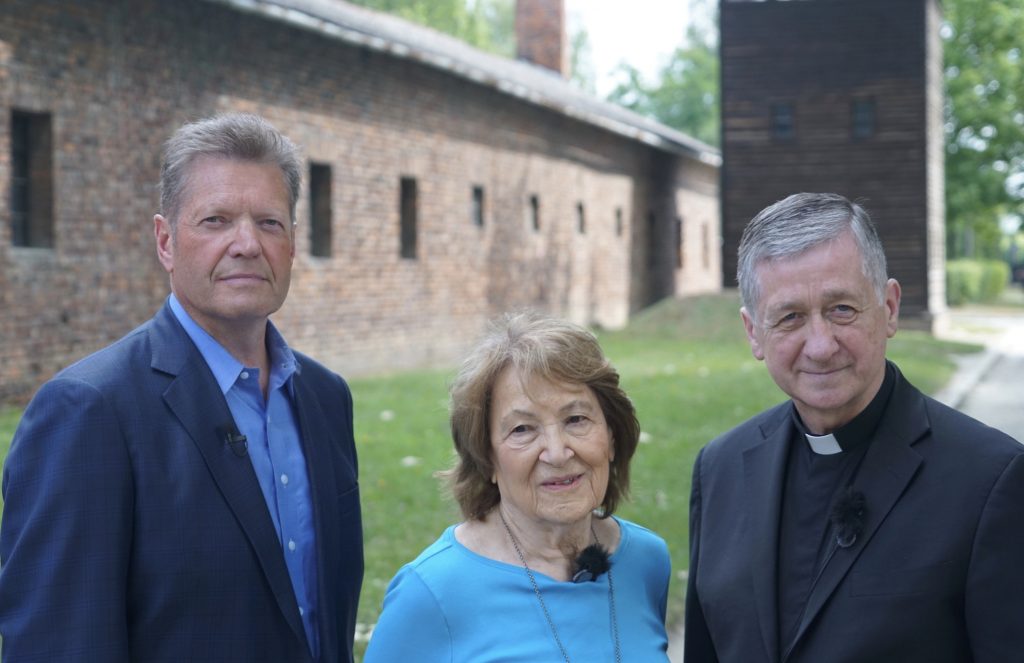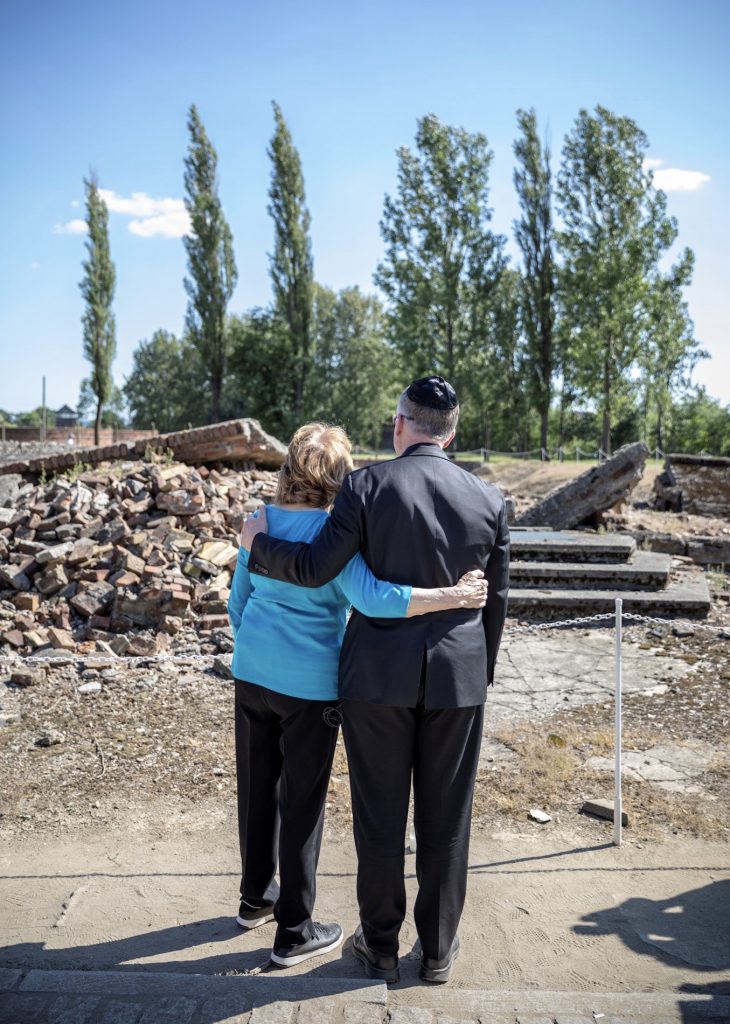Over his 37 years as a news anchor and reporter for ABC-owned WLS-Channel 7, Alan Krashesky has traveled the world more times than he can recall. But few assignments affected him as deeply as his journey earlier this month to the Auschwitz death camp with Holocaust survivor Fritzie Weiss Fritzshall.
Fritzshall, 90, a Buffalo Grove resident and president of the board of the Illinois Holocaust Museum and Education Center in Skokie, invited Krashesky to witness what was expected to be her last visit to the Nazi concentration camp where she was imprisoned as a 13-year-old girl.
"I was in the gas chambers literally when I was pulled out," she recalled. It wasn't the only time she narrowly escaped death there.
Also accompanying Fritzshall was Cardinal Blase Cupich, who knows her through his work with the museum.
The result is “Return to Auschwitz: A Survivor’s Story,” a 30-minute documentary to air Sunday at 10:30 p.m. Segments from the special are airing this week as a multipart series on ABC 7 newscasts.
“We’re here to teach, we’re here to remember, and when my generation is gone, this must never be forgotten," Fritzshall tells Krashesky, fulfilling a promise to relate the stories of those prisoners who helped protect her. "The camps must never be forgotten. The millions and millions of people [who died] must never be forgotten.
“Maybe if people will see what really happened, maybe there will be less cruelty in this world, less anti-Semitism than is going on today.”
Calling it "an extraordinary honor" to accompany Fritzshall, Krashesky said: "Her searing account of the pain she and others suffered at the camp is something that will stay with me the rest of my life.
“I had visited Auschwitz-Birkenau with my family seven years ago, and it made a tremendous impact on me then. Now, being there [with Fritzshall] along with Cardinal Cupich — and hearing her describe first-hand the torment, the starvation, the removal of human dignity, the loss of her family members – I will never forget her story and her strength in telling it. It’s a warning from more than 75 years ago that is still relevant for us to heed today. We would do well to listen,” he said.
For Chicago's archbishop, the lesson is clear.
Said Cupich: “With the rise of, once again, anti-Semitism, whether it’s in rhetoric or it’s in acts, it’s important for us to come together as a society and take a stand and say: ‘This is not tolerable.’”
Friday’s comment of the day: Margaret Larkin: I can say a lot of positive things about Bill [Moller]. I often tell people offline that he was fantastic to work with and made me not accept substandard treatment from others. He always treated me respectfully, not as "the help," and let me be myself and have lots of radio fun. He's also the best TV anchor in Chicago and one of the best in the country. He's a professional journalist who did not reveal bias during his job, and one of the most dignified talk radio hosts who had a basic respect for people. That's a very rare attitude in talk radio and even in other segments of broadcasting.



